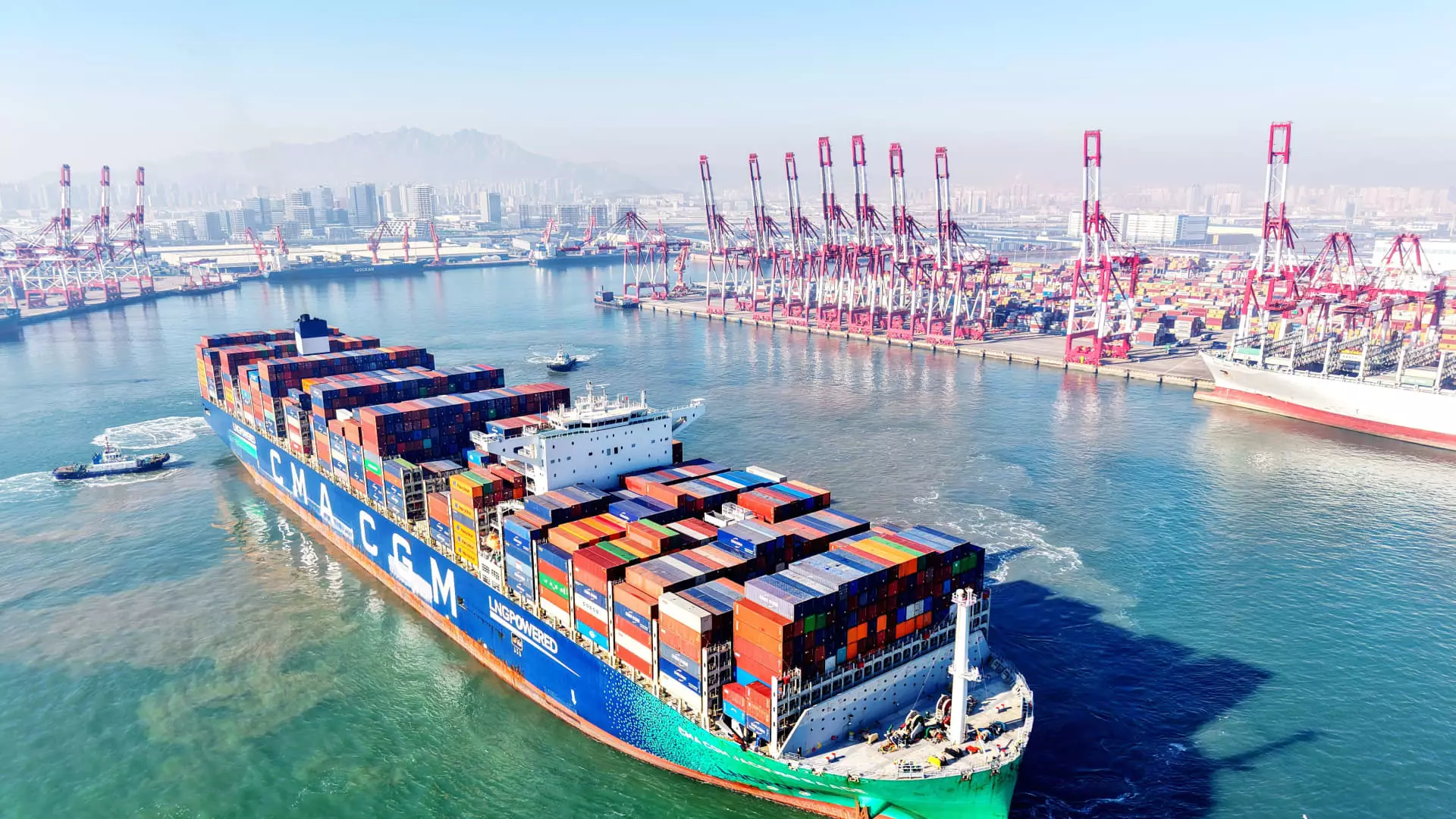In the face of escalating tariff tensions and a looming economic slowdown, the Chinese stock market is at a crossroads. Analysts from Citigroup have identified investment opportunities, particularly in high-yield stocks listed on mainland exchanges. With government bond yields hitting unprecedented lows—recently falling to approximately 1.58%—investors are reassessing the landscape and turning their attention to equities that promise better returns in this low-yield environment. The declining trend in the 10-year government bond yields has prompted a strategic shift, as the People’s Bank of China (PBOC) re-evaluates its monetary stance amid growing economic uncertainties.
Lower government bond yields are synonymous with diminished fixed-income investment appeals, pushing investors towards equities that offer higher dividend returns. Citigroup’s analysts highlight that many stocks on mainland exchanges are now perceived as attractive yield plays, especially in sectors such as banking and consumer appliances. Stocks like Yutong Bus, Gree Electric Appliances, and Ping An Bank are particularly favored, offering dividend yields that significantly surpass the current sub-2% benchmark set by government bonds.
This shift reflects a broader trend where investors are increasingly compelled to seek yield in equities due to the diminishing returns from traditional fixed income markets. As the economy grapples with slower growth rates, dividend-paying stocks provide a semblance of stability amidst uncertainties. Analysts note that the yields in the banking and home appliance sectors typically range between 4% and 6%, creating a favorable contrast against a backdrop of plummeting bond yields.
Despite the attractive yields, the stability of dividends remains a concern, particularly for companies sensitive to fluctuations in commodity prices. High yields are not guaranteed, and stakeholders must exercise caution when selecting stocks in sectors that face volatility due to external market pressures. Investors must navigate this complex landscape with a discerning eye, ensuring that their portfolios are balanced and insulated against unexpected downturns or external shocks, particularly those related to tariffs and trade policies.
Political developments, particularly those stemming from the incoming U.S. administration, have significant implications for the economic outlook in China. President-elect Donald Trump’s intention to impose tariffs on Chinese goods raises alarms about potential repercussions for Chinese exports and GDP growth. Citigroup analysts predict that these tariffs could reduce China’s exports by approximately 6% and shrink GDP by about 1% over the coming years.
The discord between the U.S. and China extends beyond mere tariffs; it’s indicative of deeper structural issues within the global economy. While a temporary respite in the form of a negotiated tariff adjustment could inspire a short-lived rally in the stock market, analysts warn that such measures will do little to address the underlying deflationary trends plaguing the Chinese economy.
Despite alarming signals from the export market, China reported a GDP growth rate of 5% in 2024, aligning with government targets. However, when adjusted for inflationary pressures and the deflationary environment, the effective growth rate is considerably lower, at just 4.2%. Policymakers face an uphill battle in reviving the economy, largely hinging on fiscal interventions and support mechanisms for key sectors, particularly real estate.
The anticipated increase in fiscal deficit and potential stimulus measures to be unveiled during the annual parliamentary meeting could play crucial roles in shaping the economic trajectory. Although higher yields in the stock market may appease yield-seeking investors, the long-term stability of these investments will ultimately depend on the effectiveness of fiscal policies and the resiliency of the broader economy in overcoming long-standing challenges.
As China navigates through these turbulent waters shaped by both domestic challenges and external pressures, investors must remain vigilant and proactive in their strategies. While there are promising opportunities in high-yield stocks, consideration of macroeconomic factors and geopolitical dynamics is essential. The evolving environment demands a nuanced approach to investing, allowing market participants to capitalize on potential upside while mitigating associated risks.
As the Chinese market braces for the implications of rising tariffs and government intervention, careful investment in high-yield stocks appears to be a strategic response to current fiscal conditions. However, only time will tell if these investments can deliver consistent yields in a setting rife with uncertainty.

